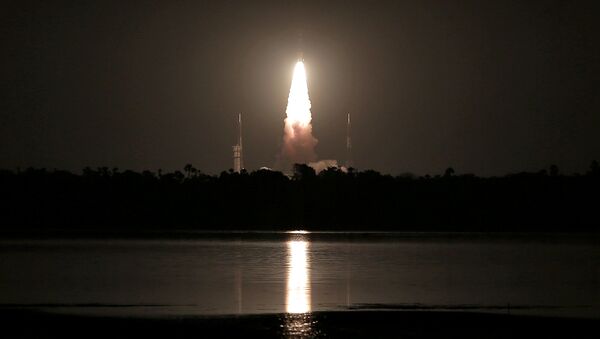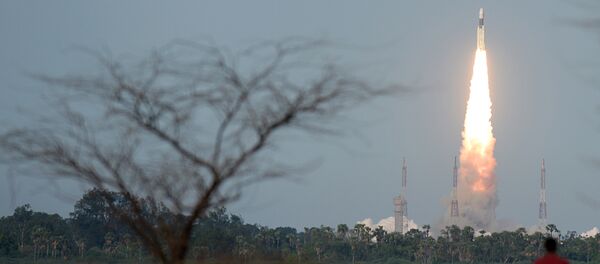New Delhi (Sputnik) – After 39 successful missions, Indian Space Research Organization (ISRO) faced a rare set back on Thursday in its mission to place a navigation satellite into space after the PSLV-C39 rocket carrying it suffered a technical fault at the final stage after its launch.
The failure assumes more significance as it was the first time the private sector was involved in the assembly of the spacecraft in the Indian space agency’s projects. ISRO chairman Kiran Kumar described the incident as a “mishap”.
"Today the launch mission has not succeeded. While all the systems of the launch vehicle performed extremely well, we had a mishap. the heat shield has not separated. We are looking into the details of what has happened and we will do the analysis and subsequently come back with the details," Kumar said shortly after the satellite's equipment failed to disjoin as scheduled about 20 minutes after the lift-off.
The heat shield protects the satellite from the heat generated by the friction against atmosphere during take-off. It is expected to separate and fall off after a satellite is placed into orbit.
Eight in the series of India’s navigation satellites, the IRNSS-1Hwas a back-up for a malfunctioning satellite IRNSS-1H. This constellation of navigation satellites is crucial for India to develop its own global positioning system. The malfunctioning satellite’s three rubidium atomic clocks had stopped functioning, rendering it ineffective in its purpose.
India is aiming to build its own global positioning system like the United States' GPS, Russia's GLONASS, Europe's Galileo and China's Beidou systems.
The IRNSS-1H saw the private sector actively involved in assembling and testing of a satellite, unlike earlier occasions when its role was limited to supplying ancillary components.
It is only the second time the PSLV, often dubbed as ISRO’s most dependable launch vehicle, has failed, after its maiden flight in 1993. Until Thursday, it has recorded 39 consecutive successful launches.



